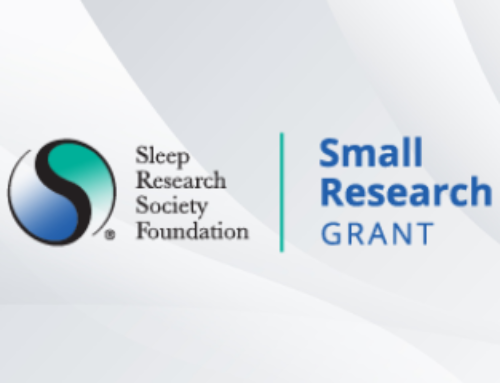Andrew W. Varga, MD, PhD, is a recipient of three AASM Foundation awards that allowed him to secure two large federal grants. Read more about Dr. Varga’s research on how obstructive sleep apnea impacts memory.
Andrew W. Varga, MD, PhD, is an assistant professor of medicine at the Icahn School of Medicine at Mount Sinai. Varga is the recipient of three consecutive AASM Foundation career development awards: 2012 Physician Scientist Training Award, 2015 ABSM Junior Faculty Award, and 2015 Bridge to Success Award for Early Career Investigators.
Varga’s research is focused on understanding the mechanisms by which sleep modify learning and memory at the molecular level of the nervous system. His specific interest is in the cognitive consequences of obstructive sleep apnea. “While the effects of obstructive sleep apnea regarding vascular health have been more thoroughly examined, the cognitive consequences have been less studied,” said Varga. “Though there is a growing literature on these cognitive consequences, our research is the first to examine a role for sleep apnea in spatial navigational memory.”
His first AASM Foundation-funded project, “Cognitive Consequences of REM Sleep Apnea,” helped identify that sleep apnea, during the rapid eye movement (REM) stage of sleep, produced sufficient impairment of spatial navigational memory, which is important for remembering where one is and knowing how to get to other locations. Varga’s second AASM Foundation-funded project, “Sleep Apnea Effects on Memory: Consequences and Mechanisms,” was a follow-up to the work done in his first award to investigate if sleep apnea during deep sleep was also harmful and to determine if deprivation of oxygen (hypoxia) and interruptions of sleep due to obstructive sleep apnea produced a negative effect on memory.
“Although the results remain preliminary, the most surprising finding was that sleep fragmentation alone appears sufficient to negatively impact memory processing,” said Varga. “These results are important because they expand our understanding of the cognitive consequences of sleep apnea and suggest that even partial absence of treatment (e.g. in CPAP users who use PAP for only a portion of the night) can negatively influence memory formation.”
The sleep community is aware of the many consequences of obstructive sleep apnea including fatigue, anxiety, depression, cardiovascular events, and decreased quality of life. Varga’s research is important because there have been few studies to understand the cognitive consequences of obstructive sleep apnea that shed new light on numerous debates within the sleep research community.
“There has been a debate within the research community as to whether sleep plays any role in the consolidation of memories, and if so, what types of memories are preferentially impacted by sleep disruption,” said Varga. “This work has strengthened our understanding of whether the patterns of brain activity associated with specific stages of sleep correlate with task-specific changes in memory in humans.”
Varga adds, “Additionally, the vascular consequences of obstructive sleep apnea have been largely attributed to intermittent hypoxia, leading to a disproportionate weight of the hypopneas associated with desaturation as the only ones contributing to the AHI4% as the preferred index of obstructive sleep apnea severity. The current project has shed light on individual contributions of intermittent hypoxia and sleep fragmentation and demonstrated that sleep fragmentation may be sufficient for the deleterious consequences on memory.”
These findings are important in the clinical realm, as they pertain to treatment adherence among patients with obstructive sleep apnea. “There are many patients in whom tolerable levels of CPAP treat their obstructive sleep apnea only partially, mostly due to the mismatch between average habitual sleep duration and average CPAP use duration. A debate in the sleep community has existed as to whether residual OSA after CPAP treatment has significant consequences,” said Varga.
Varga’s work has raised questions about possible mechanisms by which sleep disruption impacts memory. He used data obtained from his projects to secure two large grants from the National Institutes of Health (NIH). In his first NIH research project grant, his lab is exploring the impact of apnea-induced slow wave sleep disruption with and without intermittent hypoxia on the metabolism of amyloid beta, an important protein in the pathogenesis of neurodegeneration and Alzheimer’s disease. In his other NIH exploratory/developmental research grant, his lab is using functional brain MRI imaging to identify how brain circuits are recruited to support memory across sleep, and what happens to this circuit recruitment when sleep is disrupted exclusively in REM or non-REM sleep stages.
Given his tremendous success as an early career investigator, Varga gives back to the sleep research community by supporting the career development of junior investigators in his lab and recently serving as faculty at the 2019 Young Investigators Research Forum. Varga shares many pearls of wisdom for junior investigators. “It’s important to remain passionate about one’s research questions, find mentors who care, to have grit to persevere,” said Varga. “Most importantly, remember to celebrate the small successes.”

Members of the Varga Lab






